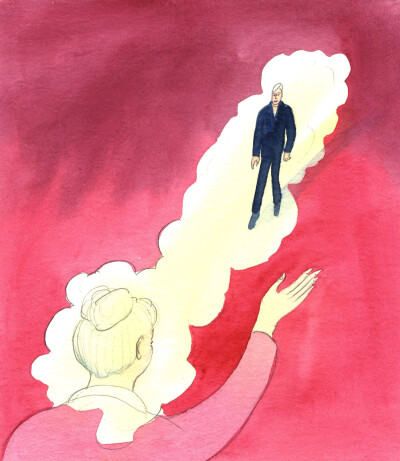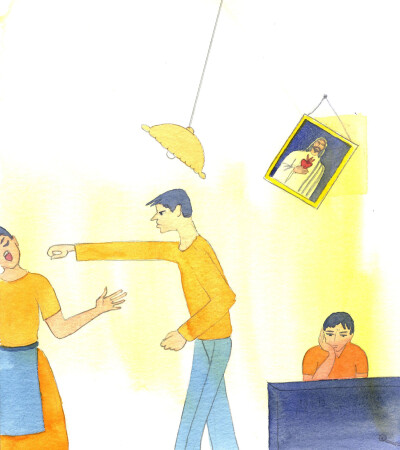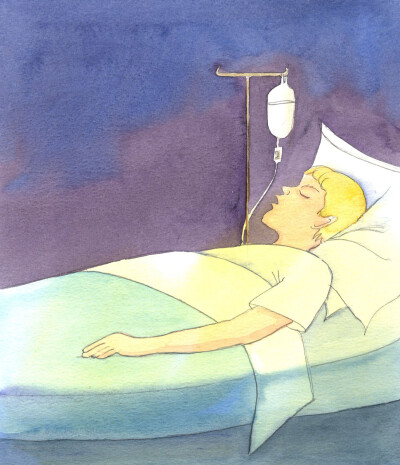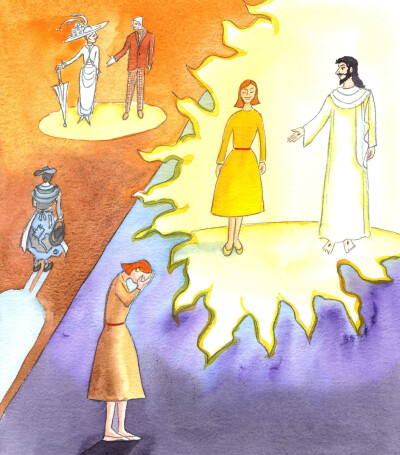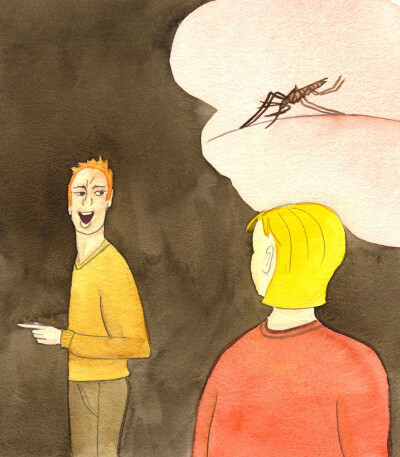Search Page
Showing 101 - 120 of 222
If we visit the sick, we please Christ. In the Gospel story, the King at the Last Judgement praised those who had visited the sick, visited people in prison, or had carried out other works of mercy.
In Christ's sight it is a praiseworthy thing, to visit the sick, or, first, to offer to do so, if we are not sure that a visit will be welcomed. A visit can bring comfort to those who feel abandoned or hopeless.
Once Christ had become a man, we learned how precious is humanity to God. We are all brothers and sisters to Christ and to one another; and each of us should treat others with respect, as Christ treated people in His earthly life-time.
Just as a person in Heaven helps us by his love and his intercession, so must we help others. It is as if we can breathe out a bright cloud of Divine Love over each person whom we greet and help out of love for Christ, Who first loved us.
Christ pointed out two groups of people who are unlikely to go to Heaven: those who commit serious sin, yet have no fear of death, no desire to change, and are blithely determined to stay the same; and those who would like to go to Heaven but make no effort to co-operate with Christ, or to pray or do works of charity.
It is a dreadful surprise, when a true follower of Christ approaches Him after death, only to discover that she had been fervent in prayer, but had neglected to help her neighbours and relations, or that she had been of service to the needy but had failed to praise and thank God for all His gifts. In Purgatory, the soul can be purified.
A person who is content to serve God in faith and darkness, and to be obedient to His wishes in everyday life, persevering in prayer and acts of charity, is swiftly drawn by Him into contemplation - even experiencing, when God Wills, the type of prayer and union in which she leaves behind earthly things, to soar upwards into His heart.
The Lord asks us all to speak the simple truth to evangelisers of various sects, and to be kind, yet, in charity, to tell them that their beliefs are mistaken. Real charity is to want them to see the truth about Christ and the Catholic Church, not to pay false compliments about false religions. Plainly, we should be well-informed about our Catholic Faith, before we take part in discussions.
A sick person should not feel obliged to accept very painful treatments which she is not convinced will cure her. But she is right to expect humane care, which every human being deserves, receiving food and nourishment, and also pain relief if available.
Every priest needs a charitable heart. God the Father, like Jesus, knows what a man is like. He sees each man's soul and personality, gifts and background and attitudes. He calls to the Sacred Priesthood only men who are suitable for that special vocation.
When societies in which abortion is common-place offer help to poorer countries, they sometimes make their offer of aid conditional upon the adoption of immoral practices such as contraception, abortion, and sterilisation. They damage families, and foster an anti-child mentality amongst women by their extreme feminist propaganda. It is a modern form of colonialism.
A person who acts in hatred towards his fellow-creatures is as if shouting out to Christ on the Cross: "No, I won't serve You. I refuse to love my neighbour". In his hatred he is more disfigured than the bleeding figure of Christ, because the man becomes less than a man, and very undignified, through his hatred. Christ was perfect man, and God, in His charity, even when He was almost unrecognisable through His many wounds.
The Lord chooses all sorts of men, to serve as priests. They bring their own weaknesses with them. The sacraments they confer are valid, despite their sins; yet priests are sometimes mistaken in their personal opinions. The best priests are those who believe in all that the Church teaches, lead humble and chaste lives, fervent in love for the Saviour and His Church, and charitable towards everyone, though unafraid to speak the truth, in charity.
In our struggle for perfect charity, it can help us if we picture Jesus Christ as being the invisible witness of our every thought, word and deed; or, if that fails, we can imagine the Pope here, in our own kitchen, and learn how to weigh our words, in his presence!
In the play called 'Pygmalion', a rich man gave lessons to a poor working girl, and transformed her speech and outlook, and clothing. Christ works an even more marvellous transformation, by His grace acting within a willing soul. He transforms the whole person, leading each to Him, to find security, joy, peace-of-soul and fulfilment in sharing His life, and also to grow in wisdom, purity, courage, hope and charity.
It is not wrong to be prudent, in making decisions about whom to trust. People who show themselves to be habitually untrustworthy are acting in accordance with their current, unpleasant nature, just as a mosquito bites because it is his nature to do so. We must speak with charity, and pray for such people, but need not trust them without some sign of repentance and change.
We are right to help the poor; but Christianity is more than good deeds. In Christ's sight, modernism flourishes where people do not have sufficient awe of God. Many good hearted Catholics, through poor instruction, have a faith that revolves around what humans need, rather than what the Father requests and deserves. They have a too-exalted view of man, in relation to God, which distorts the whole picture; whereas Catholics really grateful to God for Jesus Christ accept the Church's teaching without constant grumbling, shoulder the Cross, and strive for holiness like the Saints, out of love for their Saviour.
The life we lead on earth must inevitably lead to either Heaven and Hell (even if to Heaven via Purgatory). Those who love Christ, and persevere in charity and purity in earthly life, will enjoy Eternal life in even greater charity and peace, with Christ. People who seethe with hatred, ambition or resentment, in this life, and persist in their selfish ambitions, will find themselves in Hell with others who are self-centered and lack love for Christ.
When some Catholic children receive more teaching on self-esteem than humility, this endangers their souls. There is so much outward show, in acts of charity, and little self-effacement. The sin of pride was Satan's great fault. To become proud is to place oneself under his banner, in the war between good and evil.
Christ has called His priests to be apart, as He was, when He prayed on the mountain to His Heavenly Father. A priest must lead his flock along a narrow road, high into the peaks which lie ahead: peaks of sanctity. He can only lead if he himself is prayerful, and charitable and willing to bear hardship in the Lord's service.
Showing 101 - 120 of 222




